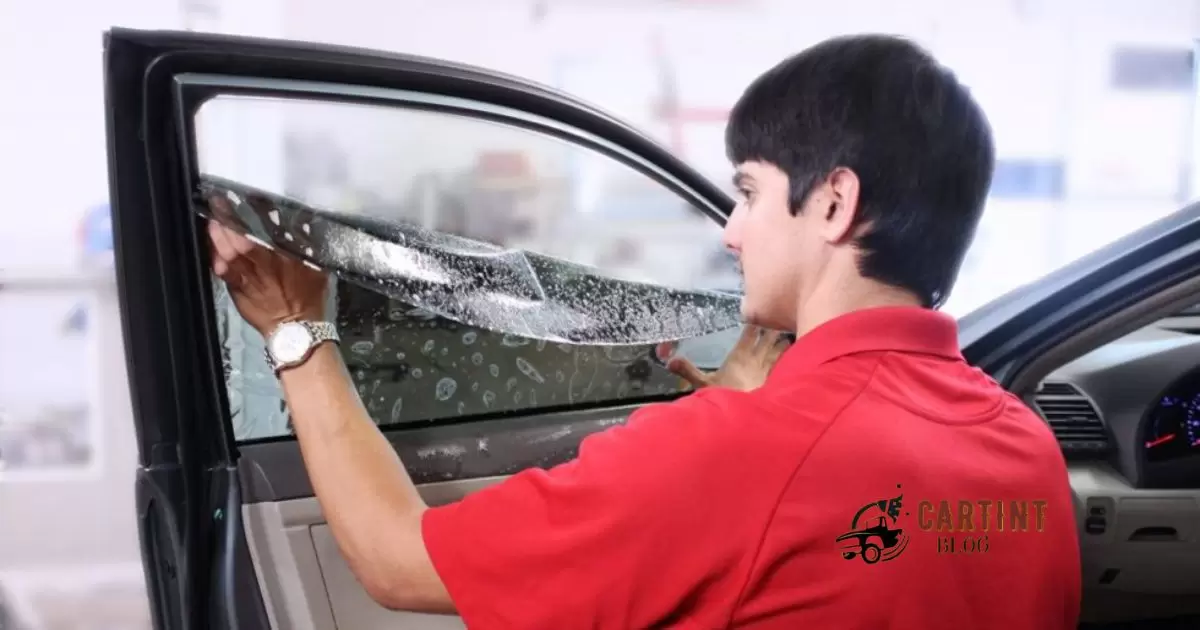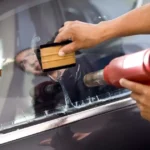Installing window tinting film on a vehicle’s glass surfaces is a popular modification for many car owners. Tinting refers to a thin, colored film that is applied to the inside of windows in order to block some natural light from entering.
Should I tint my car windows? This is a common question for drivers considering this eye-catching upgrade. Tinting car windows can provide benefits like heat reduction inside the cabin, UV protection for skin and interiors, enhanced privacy, and a stylish look.
Key reasons why drivers choose to tint their automobile windows include lowering interior temperatures on hot sunny days, blocking harmful ultraviolet rays from reaching passengers, stopping others from looking inside for privacy, and making their car, truck or SUV look cool with the deep tinted appearance.
Should I Tint My Car Windows?
Tinting your car windows is a popular modification that can provide various benefits. This comprehensive guide examines whether you should tint your car windows, the pros and cons, what percentage tint is best, legal considerations, and more.
What is Car Window Tinting?
Car window tinting involves applying a thin film to the interior glass surfaces of a vehicle. This film blocks some of the sunlight from entering the vehicle interior.
Tint films come in different shades, from barely noticeable to extremely dark. The level of visible light transmission (VLT) determines how dark the tint is, with a lower percentage indicating a darker film. If you’re wondering, does window tinting reduce heat in car? it’s important to note that the darkness of the tint can affect the amount of heat absorbed and, consequently, how much heat is reduced inside the car.
Should You Tint Your Car Windows?
There are good reasons to tint car windows, but also downsides to consider. Potential benefits include:
- Reduced glare and eye strain
- Lower interior temperatures
- UV ray protection
- Enhanced privacy
- Aesthetic customization
However, possible drawbacks include
- Reduced outward visibility at night
- Not legal in some states if too dark
- Bubbles may form under the film over time
So should you tint your car windows? It depends on your priorities, climate, driving habits, and local regulations. Read on for more details.
Pros of Tinting Car Windows
Here are some of the most notable benefits of having tinted windows in your car:
Glare Reduction
Bright sunlight, especially at low angles, can create annoying and even dangerous glare. Tinting filters some light to cut down on glare and eye strain. This also allows you to keep the sun visors up for better visibility.
Cooler Interior Temperatures
On hot, sunny days, the greenhouse effect heats up your car’s interior to uncomfortable levels. Darker window tint will block more infrared rays to keep temperatures lower inside the vehicle.
UV Ray Protection
Just like your skin needs sunscreen, the interior of your car needs protection from ultraviolet rays over time. Window films filter out 99% of UV rays to prevent fading and cracking of dashboards and upholstery.
Enhanced Privacy
With darker limo tint, people can’t easily see into your car from the outside. This provides privacy, deters smash-and-grab thieves, and allows discreet transport of valuables.
Customized Appearance
Beyond the functional benefits, tinted windows simply look cool, especially on sports cars and luxury vehicles. It allows you to put your personal styling stamp on your car.
Cons of Tinting Car Windows
However, there are also some potential drawbacks to keep in mind with tinted car windows:
Reduced Outward Visibility at Night
The darker the tint, the harder it is to see out your windows when driving at night. This important safety consideration should prevent excessively dark tinting.
Not Legal in Some States
Each state has its own legal limits on allowable VLT percentage. Too dark of a tint could result in fix-it tickets or even fines. Check your local regulations first.
Bubbles May Form
Though rare with quality installations, air bubbles can appear between the film and glass over time. This may require reapplication of the tint.
What Percentage Tint is Best?
Choosing the right level of darkness comes down to balancing benefits versus drawbacks:
- Extremely dark 5% limo tint maximizes benefits but has more downsides
- 35-20% tint strikes a good balance for most drivers
- 50% tint is lightly tinted with few drawbacks
For the best combination of hot weather cooling, glare reduction, and night visibility, 20-35% tint is recommended.
Are There Any Legal Issues With Window Tinting?
Unfortunately yes – many states prohibit excessively dark tinting on car windows:
- Front side windows generally must allow 70% of light through
- Back side windows can be darker but usually no less than 35% VLT
- Front windshield tint is often restricted to just a upper strip
To avoid fines or needing to remove tint, verify your state’s exact current percentage limits before installing any films. Tint shops should know the regulations.
How Much Does it Cost to Tint Car Windows?
Costs vary based on factors like:
- Vehicle size
- Number of windows
- Film type and quality
- Percentage of tint darkness chosen
On average expect to pay $100-300 to get car windows professionally tinted, with coupes at the lower end and large SUVs at the higher end. High-performance dyed or ceramic films also increase costs.
Should You Tint Car Windows?
Installed correctly using quality film and reputable installers, tinted windows provide cooler interiors, glare reduction, UV protection, enhanced privacy and a stylized appearance. Just be mindful of visibility and legal percentage limits based on your climate and state laws. For most drivers, a moderate tint darkness strikes the best overall balance.
Frequently Asked Question
What are car window tints?
Thin films applied to glass surfaces in vehicles that block some natural light from entering.
Why tint car windows?
To reduce heat, block UV rays, enhance privacy, and style your automobile.
What factors should I consider before tinting?
Applicable state laws, visibility concerns, quality of films, proper installation, and costs.
Will window tints lower inside temperatures?
Yes, darker tinted glass can significantly reduce solar heat radiation from entering the cabin.
Can I install window tints on my own?
You can try, but using a professional ensures proper, bubble-free application for best results.
Conclusion
Deciding whether or not to add window tint to your car’s glass surfaces requires weighing several factors. Key benefits like heat and UV light reduction, enhanced privacy, and stylish appearance make tints an appealing upgrade.
Potential downsides such as visibility concerns, improper DIY installation, and applicable state regulations should also be considered before moving forward. Ultimately, tinting your car windows can provide advantages like a cooler interior and protection from sun damage.
But it also comes with some risks, so research laws in your state, find a qualified installer, and evaluate if darker windows will work well for your needs before making the investment. Carefully weighing the pros and cons will determine if window tinting is the right choice for your vehicle.



